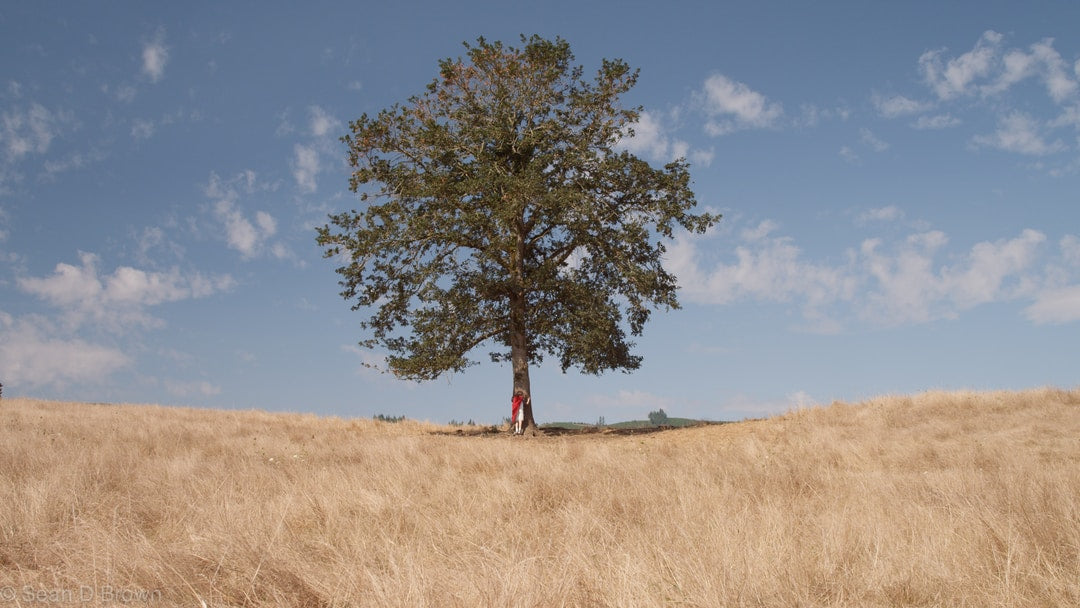
Back in college it wasn't uncommon for me to spend anywhere from three to six hours a day playing or practicing. An hour for scales, an hour for etudes, an hour for my concerto, plus symphony excerpts, chamber music, and maybe music for a gig or two. None of this time even involved the actual rehearsals which would come in at another two to four hours a day.
Nine years after graduating from college my daily practice time now probably clocks in at a less-than-impressive average of 30 minutes a day. And this is an honest average. Which means that many days out of the month, I never touch my cello for self-practice time. Other days, when I have specific repertoire or an upcoming gig, I might spend one or two hours practicing, maybe for several days in a row, only to shut it away in its case again once the gig has passed.
I know some people reading this might have zero difficulty practicing. Maybe you're preparing to apply for grad school or taking symphony auditions. You might be working on arranging and recording an album or keep a regular schedule of chamber music concerts. For some people, practice time remains not just necessary but enjoyable. But often times, for the working, gigging musician, personal practice time falls by the wayside.
Here are some common reasons for the fall-off in practice time:
Laziness
Let's just get this unpleasant topic out of the way. If I have a day where I'm not gigging or teaching, often the last thing I want to do is dig out my cello and work through some Popper etudes. But one day can stretch into a week (especially in the summer!) and while I am a HUGE advocate for taking rest days and vacations, I'm not a fan of unintentional time.
And I'll be the first to admit, I fall into the trap of wasted, unintentional time all the time. Just look at my Netflix queue or Instagram feed. I can sit on my bed staring at my laptop screen with my cello sitting in the background for hours and never even feel guilty. That is until it's 11:30pm and everyone's gone to bed and I haven't done anything more productive than advance my level in Candy Crush for the last five hours. Pure. Laziness.
Multiple Interests
Most musicians have spent their entire lives dedicated to being good at music. So it's not uncommon in adulthood to wonder, "what else is there?" I discovered comedy five years ago and now I can't imagine my life without it. But the time committed to writing sketches, attending improv classes, and playing and seeing shows most definitely effects the amount of time I have to spend with my cello.
I don't think I could ever claim that my love of improv and comedy takes that much more time than the course-load of General Education classes I had to take in college. Somehow in my undergrad I found time for Spanish and Biology classes and homework in addition to the seven other music classes and ensembles I had in my schedule.
Sure, I need to find time to write and research this blog, go for a run, read the news and maybe grab a coffee with a friend, but I could probably better structure my day to get in an hour of practice time in addition to these activities.
Work
Gigging and teaching take a lot of time. Especially in a big city like Los Angeles where, in addition to the time spent working, you can count on adding an average of 45 minutes of commuting time. On a Saturday it's not uncommon for me to leave the house at 8:15 am and return around 9:00 pm. Three and a half of those hours are spent in the car, four hours teaching and the rest spent at a gig or rehearsal.
This is a pretty ideal problem to have for those of us trying to make a living as a freelance musician. A busy work schedule hopefully means several incoming paychecks. It can also mean an increase in stress and anxiety levels, less sleeping, more eating out/drinking, physical soreness and repetitive stress, and a general feeling of exhaustion that makes sitting down with our instrument in our free time far less desirable.
And to be really honest, a big reason I put in so many practice hours in college was to lessen the need of practicing so many hours later in life. Because the responsibilities of life definitely catch up. Working means time spent filing taxes. Gigging means time spent answering emails or finding subs. Teaching means time spent making lesson plans. And then there are the milestones in life of buying and up-keeping a house, dating and having a family, aging and maintaining playing chops.
Lack of a Challenge
But another reason I put in all those hours in college was to lessen the amount of challenges I'd potentially encounter in my professional career. The hours spent learning finger patterns in scales and etudes should, by now, be quickly accessible and applied to the music I find in an average wedding gig, session or live show. That way I don't have to practice Pachabell's Cannon or the most recent Top 40 hits and I can sit down and play a studio session when the music only arrived on my stand ten minutes ago.
But without auditions, challenging repertoire for a gig or a regular ensemble with recital dates, what is there to motivate me to go beyond the average 30 minutes of practice time I need each day to upkeep my intonation, strength and agility?
The Importance of a Growth Mindset
The struggle of many musicians, myself included, is after graduation and several years into working, we begin to develop a fixed mindset, we stop challenging ourselves and we stop growing in our craft. I believe a huge part of it is because we've already "achieved" what we set out to do. But in music, if you're not moving forward in developing your craft, you might just find you've drifted backward.
In 2006 psychologist Carol Dweck published her now highly popular book, "Mindset: The New Psychology of Success." This publication takes an in-depth look at the idea of a "fixed mindset", when "people believe their basic qualities, like their intelligence or talent, are simply fixed traits" versus a "growth mindset" when "people believe that their most basic abilities can be developed through dedication and hard work". While a performers musical talent is often undeniable, it's the amount of work they put in behind the scenes, continually, that propels them to the top of their field, not their talent.
A true growth mindset, not an obligation to parents, performing ensembles or a paycheck, continues to seek out opportunities to learn rather than opportunities to have approval. Many times I am more concerned about my appearance on a gig than my performance on a gig and this is evidenced by the amount of time I am willing to spend growing (practicing) in my own personal time.
It's true, I don't want to be a concert soloist or win a symphony chair but I would like to maintain enjoyment over obligation and maybe know that my music career will be more than wedding casuals for the rest of my life. I mean, I've already got Pachabell's Cannon on lock. And what if my desires change in five years? Will I have the ability or mindset to deliver on those desires?
Having a growth mindset means I'm willing to get out of my comfort zone when it comes to practicing new repertoire. Maybe tackling an etude that's always scared me or a concerto I didn't play through in college. It means focusing on what I can improve by believing in what I'm already skilled at and building from there. And it means abandoning what doesn't serve me whether it's Netflix or the unnecessary repetition of what I already know.
Just like an athlete increasing reps or adding weight to grow their strength and endurance, a musician needs to challenge themselves to grow if they hope to achieve high performance ability. A growth mentality is not just for the jobs we could have, but for the jobs we already have. So train like an athlete to play like a musician!
Karen







